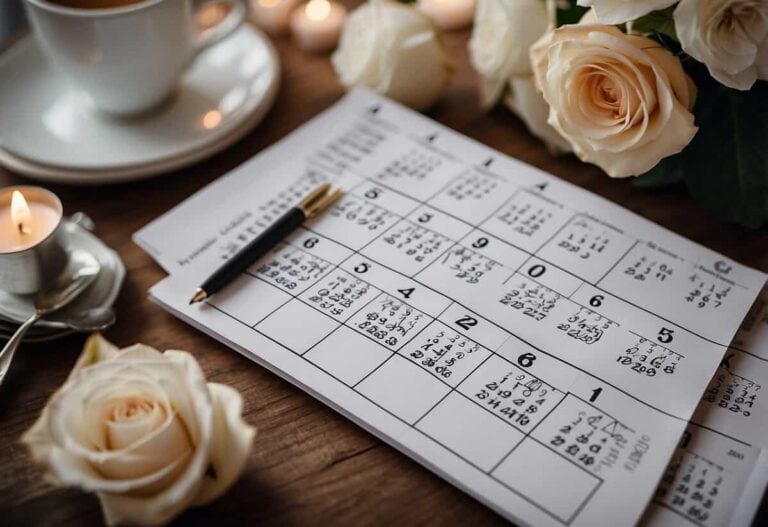What Words Must Legally Be Said at a Wedding? Understanding the Vows and Declarations
When planning your wedding, you might wonder about the legal essentials that make your marriage official. Across different jurisdictions, the specific legal requirements can vary. Generally, while the exact wording can differ, there is a common legal thread that requires both parties to express their clear intent to enter the marriage. This is known universally as the Declaration of Intent, which historically might have taken the form of the traditional “I do.” However, as long as the essence of mutual agreement and consent are evident, the law recognizes the union.
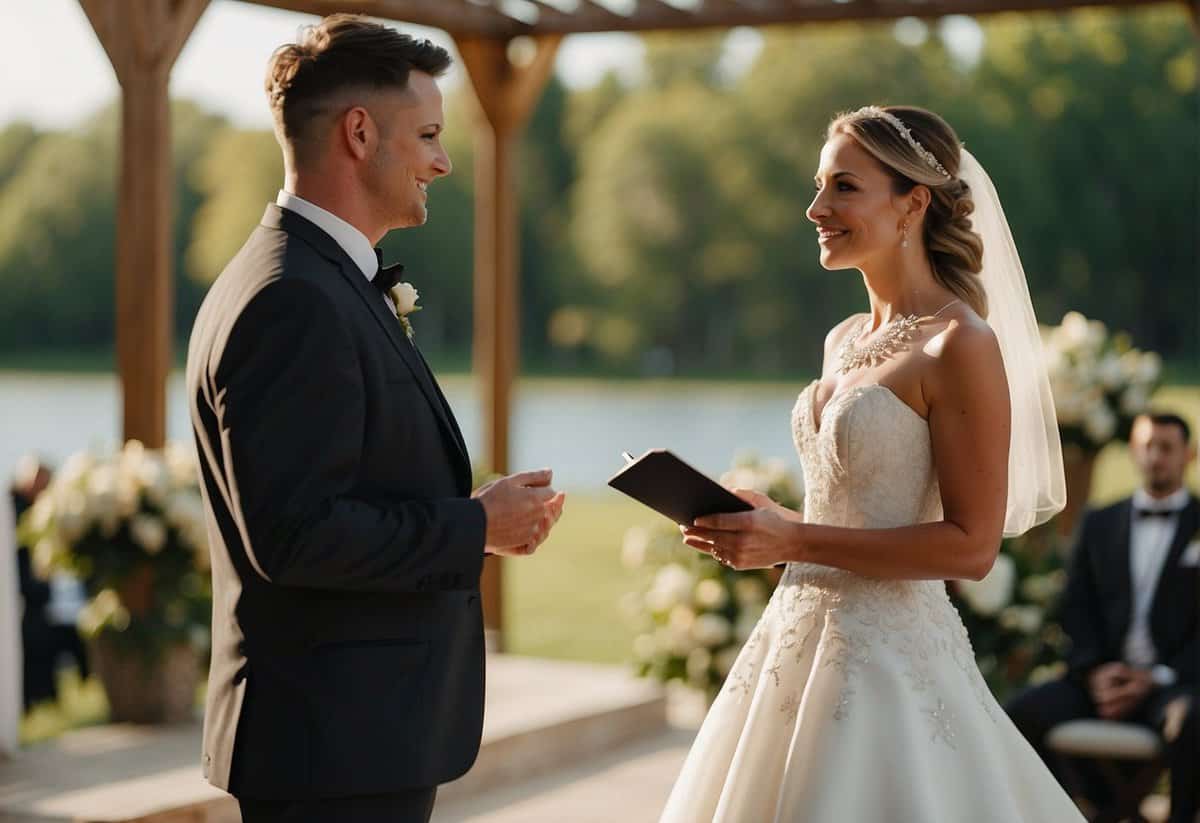
The official who oversees your ceremony also plays a vital role in the legal process. This person must be legally recognized to perform the wedding and must pronounce you married once the Declaration of Intent is made. Additionally, your marriage isn’t just an expression of love but a legal contract, and the officiating individual verifies this contractual agreement by signing your marriage license. These are the elements that the law pays attention to, ensuring that your union is legally valid.
Understanding that a wedding ceremony is both a personal and legal event can help guide you in planning your ceremony while ensuring it meets the necessary legal prerequisites. It’s essential to know these requirements to avoid any complications with the legal validity of your marriage. Customization of your vows is possible, but it’s crucial to incorporate the legal components to make your marriage official.
Key Takeaways
- Expressing a mutual intent to marry is essential for a legally binding union.
- An officiant must legally pronounce and sign the marriage license.
- Personalized vows are permissible, but should include the legal declaration of intent.
Legal Foundations of Matrimony
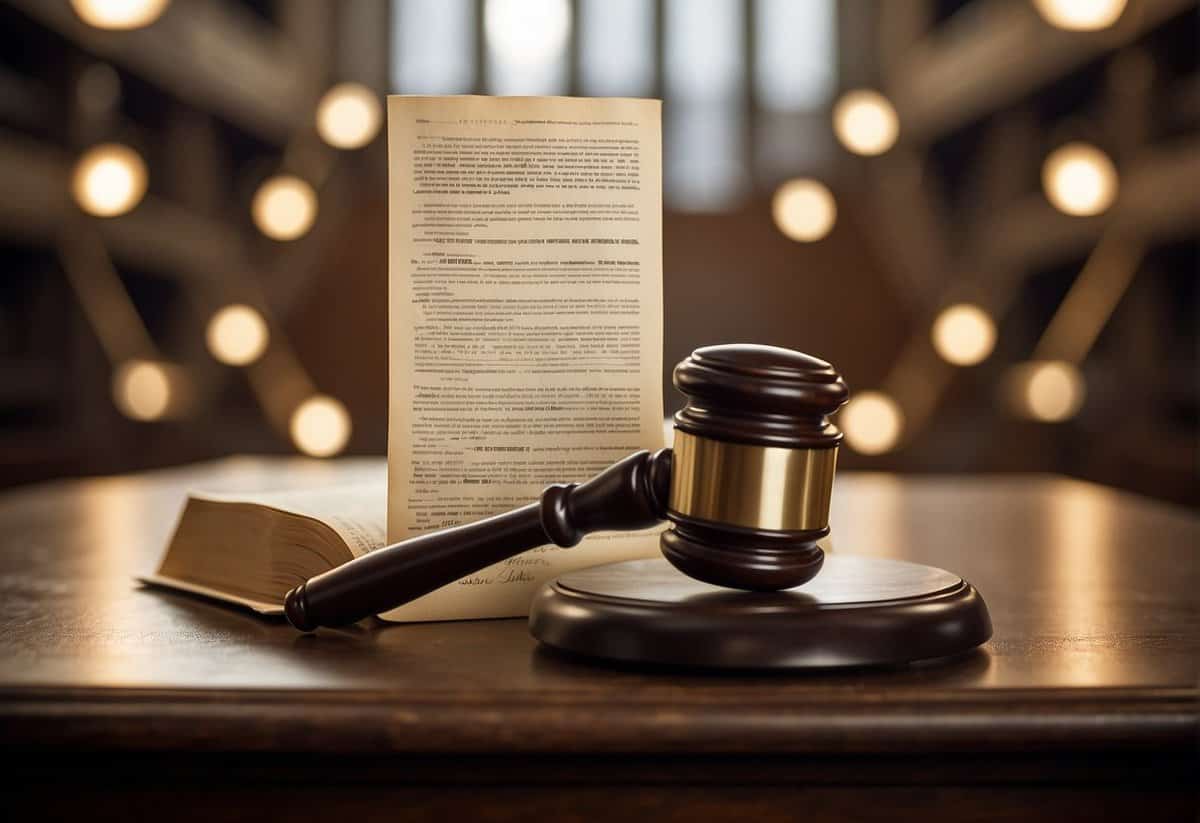
In planning your special day, it’s important to know that while the ceremonial elements vary widely, certain legal foundations must be met for your union to be recognized. Here are the specific legalities you’ll need to ensure are in place.
Marriage License Requirements
Before you say “I do,” you need a state-issued marriage license. This is the official document that legally binds your partnership. You must apply at a local county clerk’s office. Be mindful there may be a waiting period – often 24 hours to a few days – before the license is valid. Once obtained, the license typically must be used within a set timeframe, usually 30 to 90 days.
The Role of the Officiant
Your wedding officiant plays a crucial role; they are responsible for solemnizing your marriage according to the law. They must confirm that the marriage license is valid, oversee the exchange of vows, and sign the license along with the couple and any required witnesses. The signed license must then be filed with the appropriate government authority to legally validate the marriage.
State-Specific Family Laws
Each state has unique family laws that govern marriage. These laws dictate who can marry, the legal age without parental consent, and even the specifics of what needs to be said during the ceremony. While most states do not mandate exact wording, there is often a requirement for a Declaration of Intent, signaling both parties voluntarily agree to enter into marriage. It’s vital you understand your state’s requirements, which can easily be found through a local county clerk or by reviewing state-specific legal guides.
Ceremonial Exchange
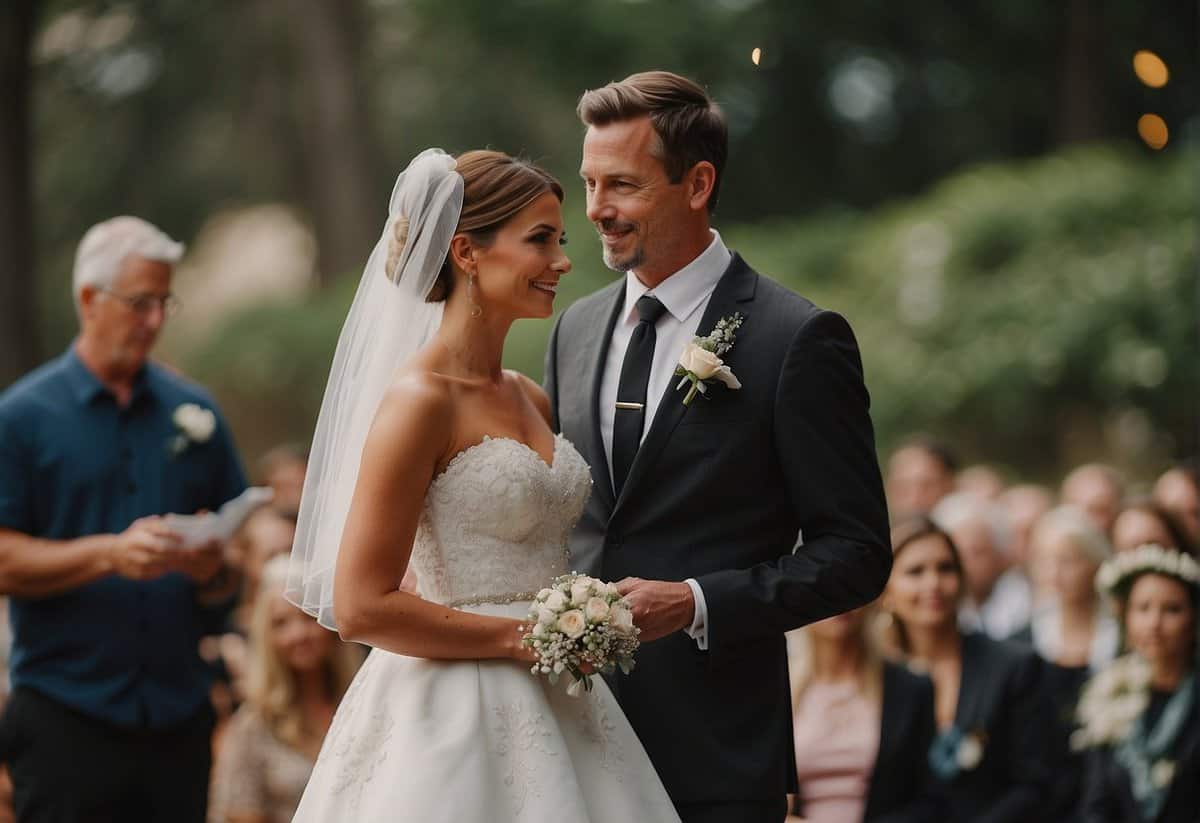
When you’re planning your wedding, the words you choose for the ceremony play a pivotal role in making it legally binding. The Ceremonial Exchange is the heart of your special day, encompassing the promises and declarations that unite you and your partner in marriage.
Declaration of Intent
Your Declaration of Intent is crucial. This is where you and your partner make it clear that you both willingly enter into the marriage. It’s a simple yet powerful affirmation often encapsulated by asking, “Do you take…?” Your affirmative response to this question is a necessary step to fulfill legal requirements.
Exchange of Vows
During the Exchange of Vows, you have the freedom to personalize your commitment to one another. Whether you opt for traditional phrasing or write your own, this is where you verbalize your promises and commitments to each other. It’s the narrative core of your ceremony, reflecting your unique relationship.
Reading and Music Selections
While not legally required, your choice of Readings and Music Selections can add depth and personalize your ceremony. You can include favorite poems, literature excerpts, or religious texts. Music can set the tone, whether it’s a live instrumental or a song that holds special meaning for you both.
Personalizing Your Ceremony
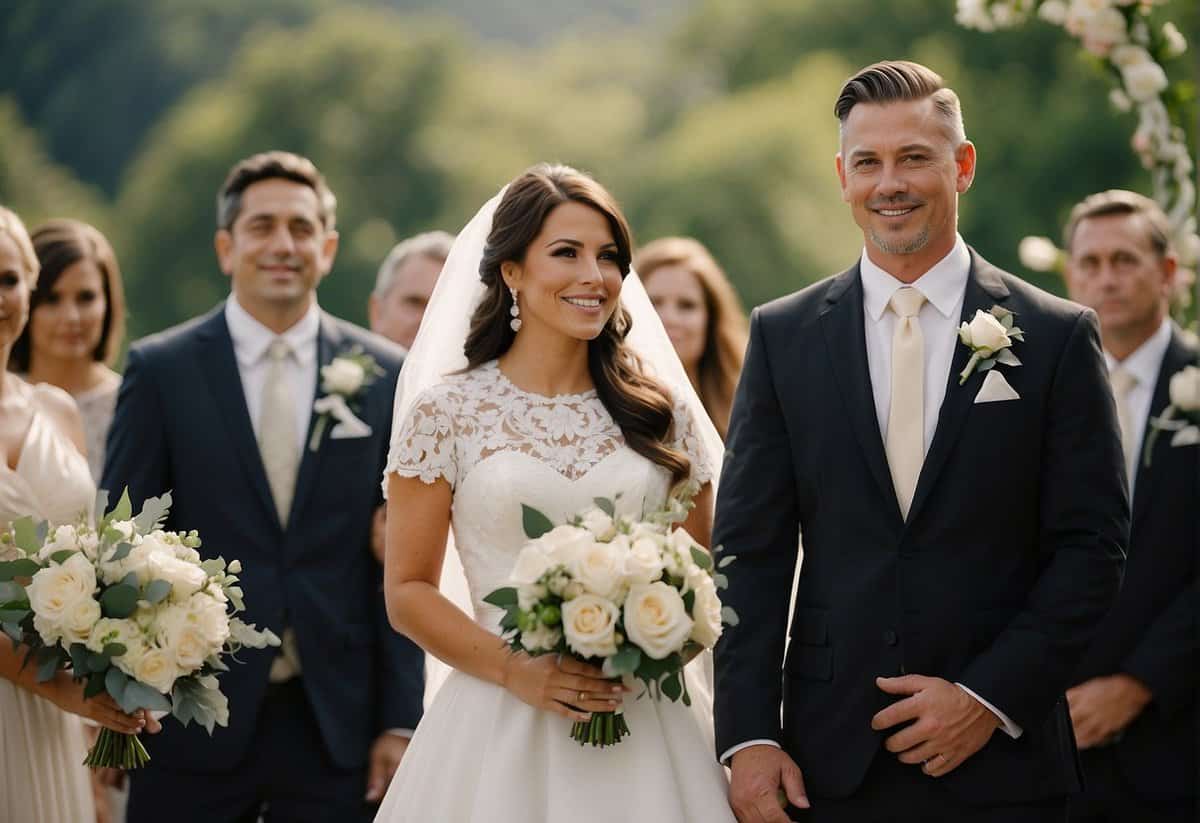
When it comes to making your wedding truly memorable, infusing your ceremony with elements that reflect your unique story, cultural heritage, and the people who matter most can make all the difference. Personal touches not only enhance the experience for you and your partner but also create a more inclusive and engaging atmosphere for your guests.
Incorporating Cultural Traditions
Embracing your heritage is a heartfelt way to honor your family history during your nuptials. Research traditional rituals or symbols from your cultural background and integrate them thoughtfully into the ceremony. You may choose to wear a garment that signifies your culture or incorporate a meaningful custom, such as the lasso or sand ceremony, which reflects the blending of two lives.
Creating Personalized Vows
Writing personalized vows is a profound way to express your commitment and affection. Start by reflecting on your relationship, the milestones you’ve shared, and your hopes for the future. If you’re unsure where to begin, consider utilizing templates or examples as a foundation to craft vows that speak from the heart and resonate with your unique bond.
Including Family and Friends
You can make your ceremony more intimate by involving family and friends. Assigning various roles like readings or performances to loved ones can add a personal and heartfelt touch. Remember to convey your gratitude and appreciation for their support; a simple mention during the ceremony can make a significant impact.
Remember to check and abide by any legal wording requirements in your jurisdiction, but don’t hesitate to make your ceremony one of a kind.
Finalizing the Union
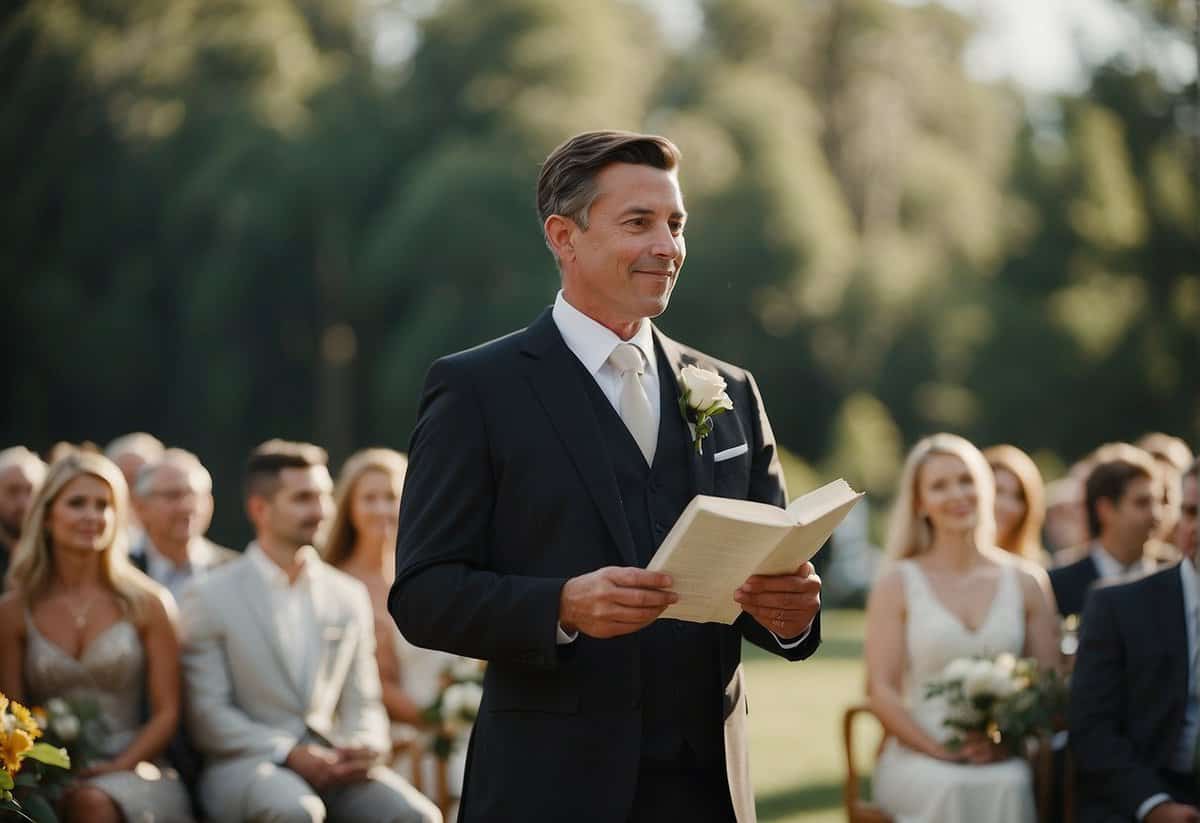
In the final stages of a wedding ceremony, certain legalities must be adhered to in order to make the marriage legally binding. This involves a formal declaration by the officiant as well as the signing of the marriage certificate.
Pronouncements and Proclamations
Once you and your partner have made your vows to each other, the officiant will make a vital pronouncement. This is the official declaration that you are legally wed—in essence, the exact moment you are married in the eyes of the law and possibly your chosen faith. The traditional phrases associated with this act – such as “I now pronounce you husband and wife” – are not mandated by law, but some form of verbal declaration typically marks this transition from engaged to married.
Signing the Marriage Certificate
The ceremony leads to another significant legal requirement: the signature on the marriage certificate. After the pronouncement, you and your spouse, along with your officiant and often at least two witnesses, will complete and sign the marriage certificate. This document is a legally binding record of your union, and the signatures attest to the legality of the marriage. It’s the physical evidence that you have entered into the marital contract, and is required to be filed with the appropriate government office to be recognized legally.
Frequently Asked Questions
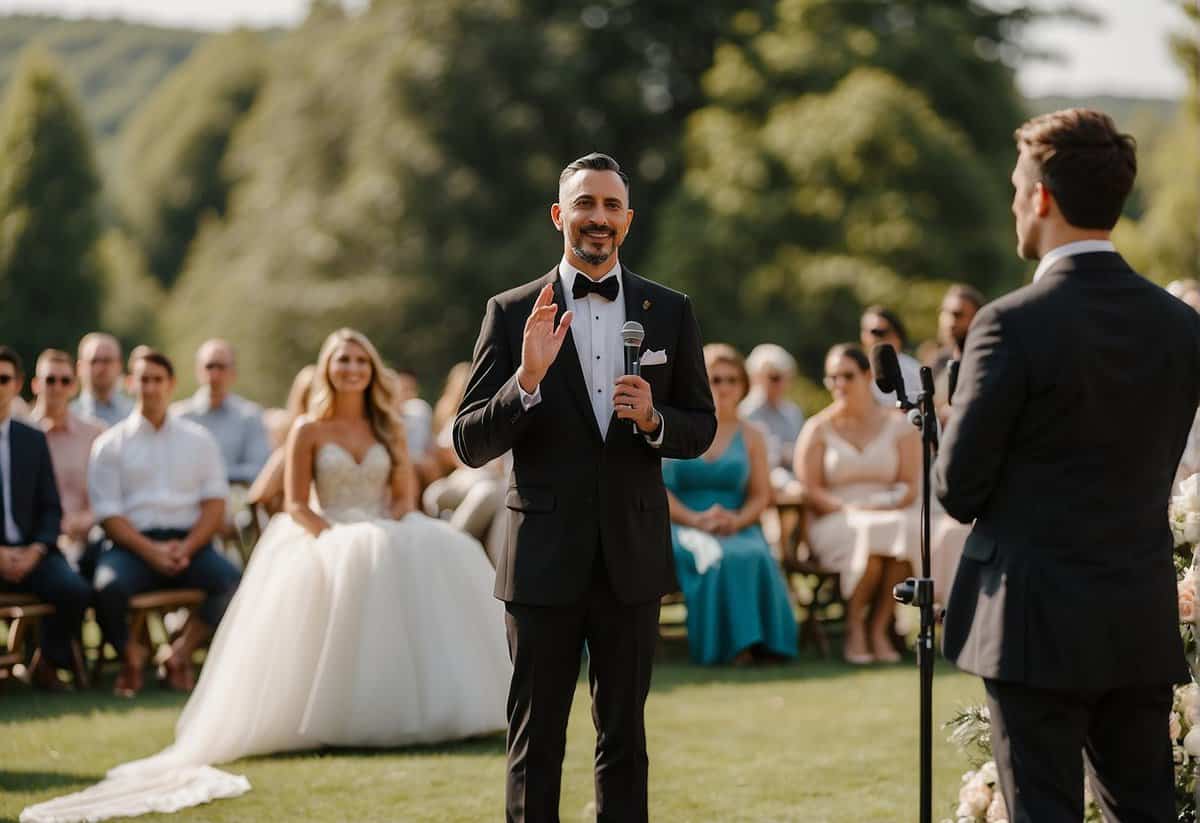
Wedding ceremonies are often thought of as highly personalized and romantic events, however, some elements are required by law to ensure the validity of the marriage. Here, you’ll find answers to common questions about the necessary legal wording during a wedding.
What phrases are mandatory for a legal marriage ceremony?
No specific phrases are universally required by law for a marriage ceremony, but you need to express a Declaration of Intent to enter into the marriage contract and the officiant must pronounce you married.
What is the minimum wording required during the exchange of vows for validity?
The minimum wording to observe is the exchange of vows which encompasses a declaration of intent and a pronouncement by the officiant.
Which declarations are a legal necessity in a wedding ritual?
Legally, the essential declarations involve consenting to marry each other and are often framed as a question and answer where you agree to marry the other person.
What do officiants typically say to legally bind a couple in matrimony?
Officiants will typically request a verbal affirmation of your intent to marry before making a pronouncement that you are legally wed.
What script might a priest follow for a legally binding marriage?
A priest or clergy member typically follows a traditional script that includes asking if you willingly take each other as spouses and concludes with a declaration that you are now married, which is key for the ceremony to be legally binding.
Are there specific statements that must be included in a civil wedding for it to be recognized legally?
In a civil wedding, like any other, the critical components include mutual consent to marry and a formal pronouncement by the official performing the ceremony.


